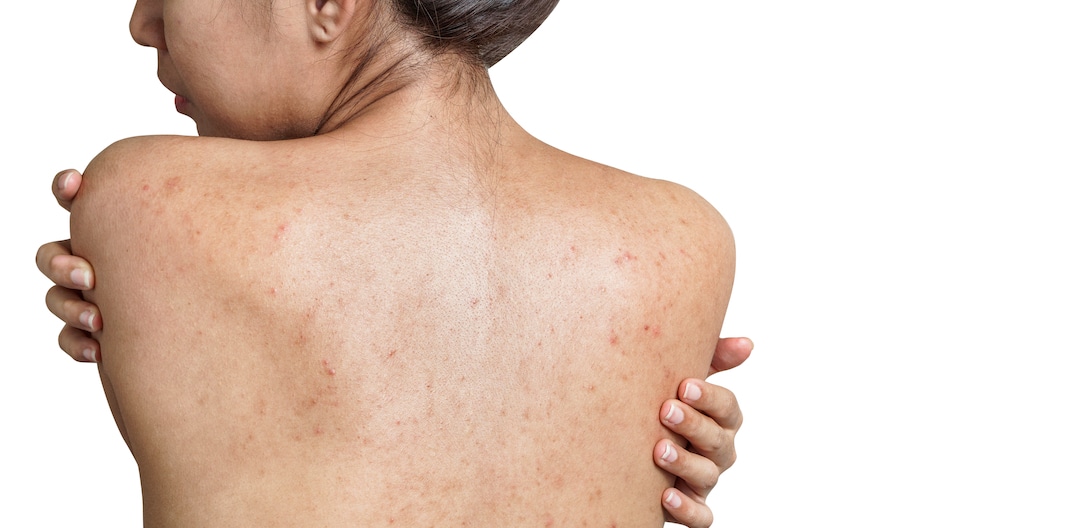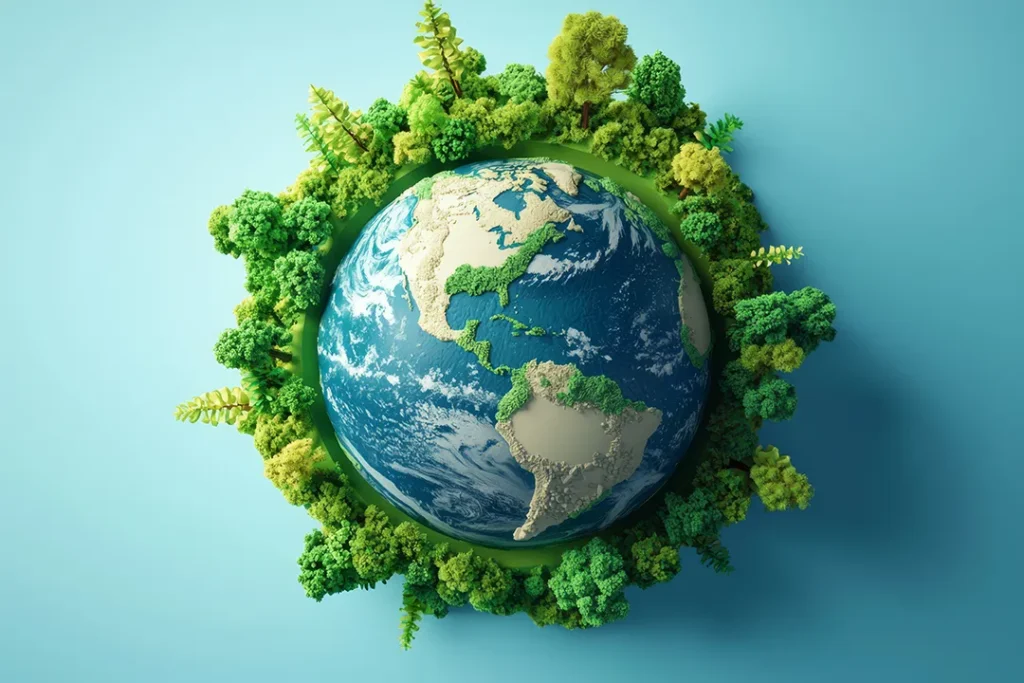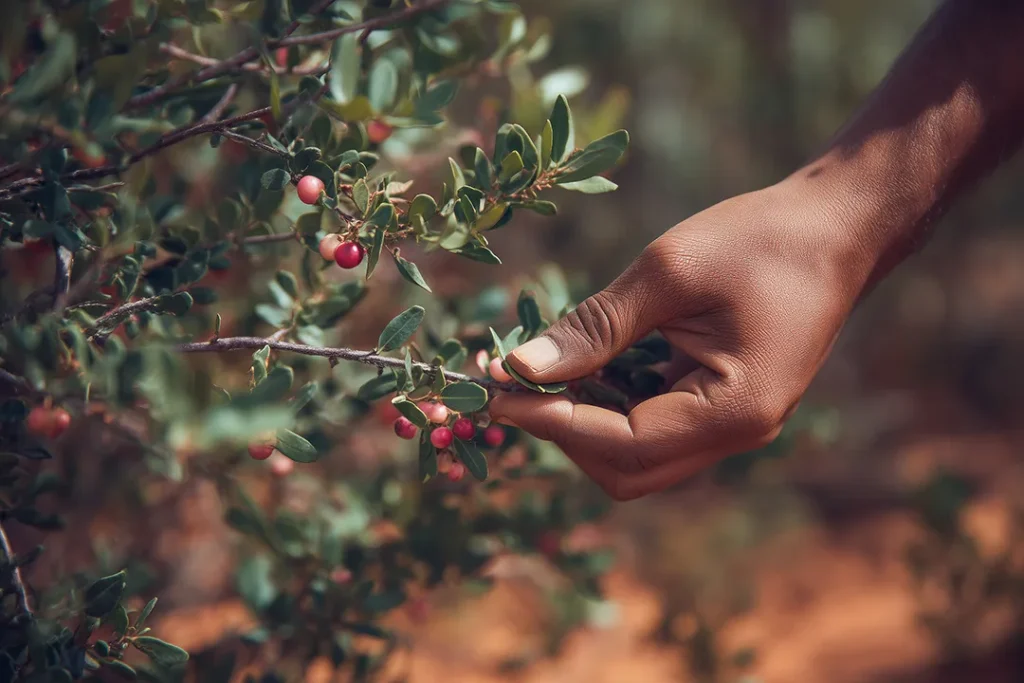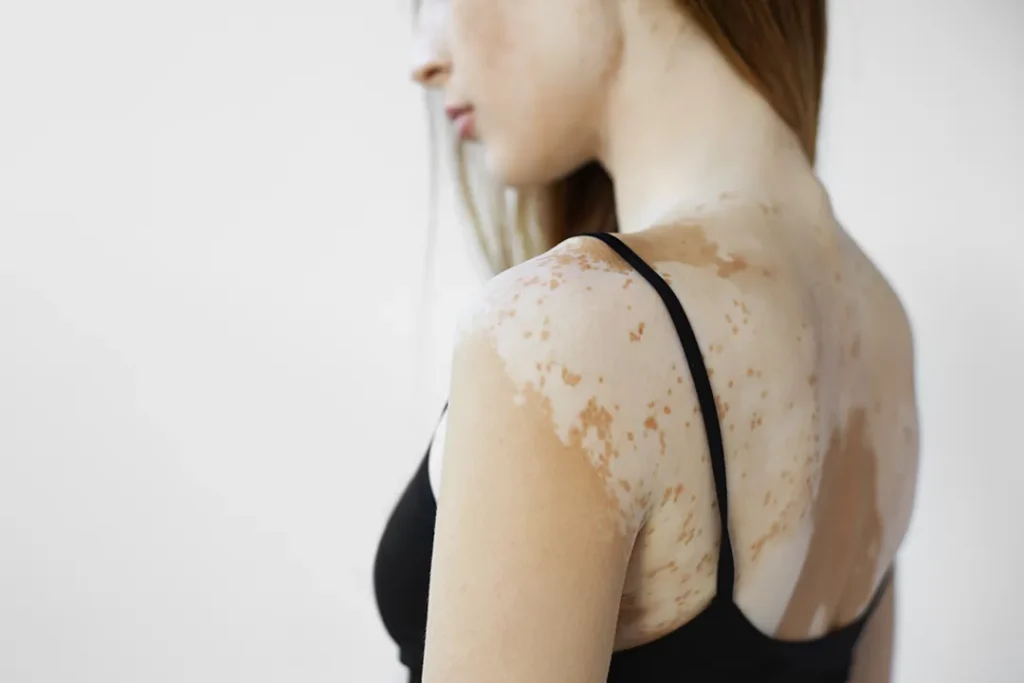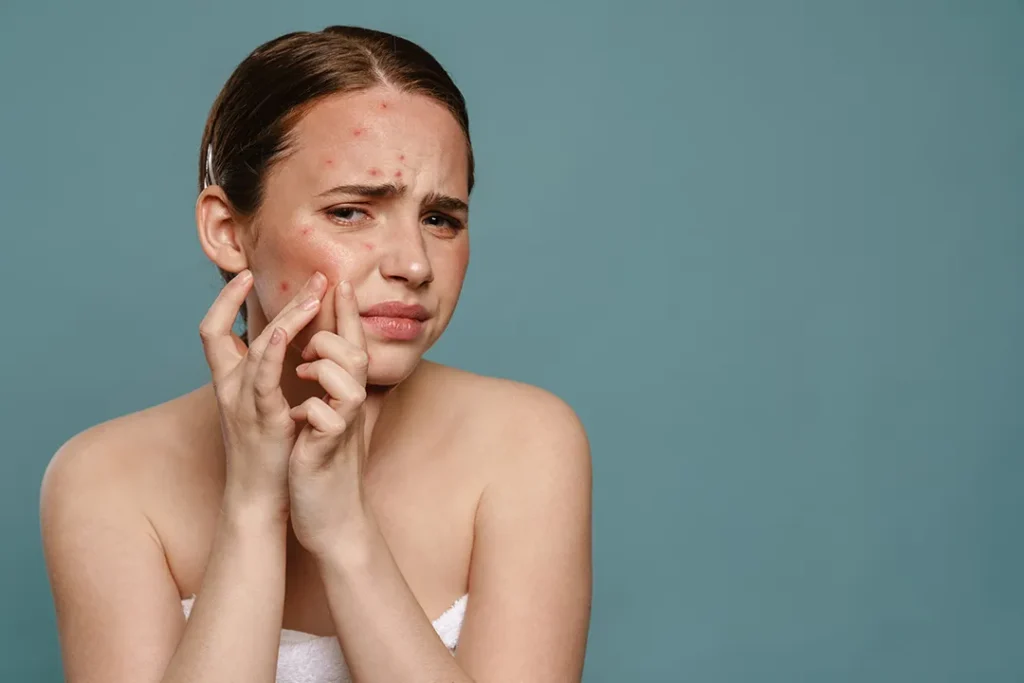Here in Australia, where we love to be bare, the embarrassment of back pimples keeps many people under wraps. We hope today’s article can help change that.
Why Do I Have Back Acne?
Back acne and facial acne share the same origins: pores clogged with dead skin cells and oil.Over time, this triggers an inflammatory response and the development of cutibacterium acne, a common skin bacterium. If you’re a sports enthusiast, you’re especially at risk. The increased sweat output combined with the friction of sports gear or togs against the back can cause a hair follicle to break down, burst, and create an acne lesion.
The 6 Types of Back Acne
Just as with facial acne, back acne takes many forms. The medical skin experts at Austin Clinic have the training and experience to assess which is which, in order to provide our patients with the best possible solutions:
- Blackheads – These bumps exhibit black tips due to a reaction between the air and the sebum, not because of trapped dirt as many people believe.
- Cysts – Typically larger than other types of bumps, cysts develop when bacteria is trapped in a hair follicle. An infection can develop, spreading deeper into the skin, making cysts especially uncomfortable. They are also prone to scar.
- Nodules – Like cysts, nodules develop due to the presence of bacteria. They create lesions deep beneath the skin’s surface. Like cysts they harden and cause pain. More troubling, the depth of nodules can lead to tissue damage as well as an inflammatory response.
- Papules – Unlike other types of acne lesions, these small pink bumps don’t contain pus. They develop when a clogged hair follicle is inflamed.
- Pimples – Medically known as pustules, pimples are acne bumps with a red base. They occur when a build-up of white blood cells causes a papule (above) to fill with yellow or white pus.
- Whiteheads – Whiteheads form when a plugged hair follicle closes causing a white bump to form beneath the skin.
How to Treat Back Acne
The first step to an effective treatment is a diagnosis of your problem. Acne is not always acne. Milia, a different skin problem, may look like acne, but is treated entirely differently. An expert assessment will keep you from making treatment choices that could aggravate rather than ameliorate your problem. Step two is designing your home treatment plan. The good news is that you can treat back acne the same way you treat facial acne. The secret is using cleansers, moisturisers, and other skin products specifically formulated for people with acne.
Questions Answered, Bacne Treatment and More
If you’re unhappy with bacne and the state of your skin, Austin Clinic can help. Contact us today and we can work together to put bacne behind you.
